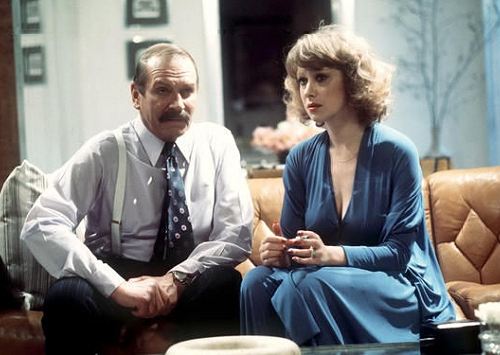The phone rings in a London apartment in the middle of the night. Harry answers. On the other end an unknown voice asks for Bill.
It is in this atmosphere of suspense, worthy of an Agatha Christie movie that Harold Pinter’s “The Colllection” opens. The work which was first performed in 1962 directed by Pinter himself and Peter Hall, is a mystery featuring two couples, where the ending is never revealed leaving us with the doubt that maybe no “crime” was committed…
But let’s take one step back. Harry and Bill are a gay couple who live in the high-class London neighbourhood of Belgravia. Then we have Stella and James, husband and wife who live in Chelsea.
Bill and Stella who are both successful designers, meet by chance in Leeds… what happened between them in the Yorkshire town? Did they spend a night together in a hotel room as Stella says?
Stella’s husband is determined to find out the truth. And so James, following the phone call in the middle of the night turns up at Billy’s house with no warning.
Up to this point it might seem a rather common story about infidelity with the betrayed party ready to challenge his rival to enter a one-in-one combat.
However, we know we can expect something different from Pinter.
And a storm of rivalry and passions breaks out around the alleged relationship between Bill e Stella, an ill-concealed battle within the two couples, fought through lies and contradictions in which the characters choose never to say what they really think.
Bill becomes the bone of contention, submitted to James’ inquisitions and to the “friendly fire” of his partner Harry, jealous not only of the woman who might have seduced his lover but also of her husband.
Between mundane rituals with olives and vodka, silence and pauses, a deep struggle takes place where words become sharper than the knife launched by James, “just for fun”, which injures Bill’s hand.
And so the act of adultery, probably only imagined and recounted, breaks the characters even more than a real betrayal. Because in the end, poised on the thin line dividing reality and fiction, the truth remains uncertain.
________
In 1976 the great Laurence Olivier produced a television version of “The Collection” masterfully played by Alan Bates (James), Malcolm McDowell (Bill), Helen Mirren (Stella) and Olivier himself in the role of Harry.
For those wishing to watch it: The Collection

